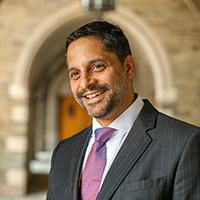Property Law: Rules, Policies, and Practices, Eighth Edition
Property Law: Rules, Policies, and Practices, Eighth Edition
Buy a new version of this textbook and receive access to the Connected eBook with Study Center on Casebook Connect, including lifetime access to the online ebook with highlight, annotation, and search capabilities. Access also includes practice questions, an outline tool, and other helpful resources. Connected eBooks provide what you need most to be successful in your law school classes.
This hugely successful materials-and-problems book is acclaimed for its textual clarity, evenhanded perspective, and contemporary, up-to-date character. Easily distinguished from other property casebooks for its plain-language descriptions of legal doctrine; explanations of the social ramifications of our system of property law; emphasis on statutory and regulatory interpretation; comprehensive treatment of public accommodations and fair housing law, tribal property issues, and property in human bodies; and use of the problem method to teach legal reasoning and lawyering skills. Streamlined for more accessible teaching, the Eighth Edition has been thoroughly updated to reflect significant changes in the law of property, including in responses to the Covid-19 pandemic, in intellectual property, housing discrimination, regulatory takings, and more.
Key Features:
- Updated to reflect significant changes in the law of property to help professors keep current and be aware of emerging disputes
- Streamlined to assist in making teaching from the casebook more accessible, without sacrificing coverage and depth
- New materials and problems have been added in an array of areas, including:
- The importance of race and slavery in shaping property law and distribution
- The impact of the Covid-19 pandemic on several core areas of property law
- Growing questions about the balance between public accommodations and religious liberty, including Masterpiece Cakeshop, Inc. v. Colorado Civil Rights Commission, 138 S. Ct. 1719 (2018) and its aftermath
- Emerging caselaw on the rights of people experiencing homelessness;
- Shifts in property rights emerging from marriage and non-marital intimate relationships;
- New materials on the law and practice of trusts and the impact of reproductive technologies
- Recent developments in tribal sovereignty disputes, including McGirt v. Oklahoma, 140 S. Ct. 2452 (2020)
- Developments in intellectual property, including in copyright and fair use
- Shifts in fair housing law, including developments involving landlord responsibility for tenant-to-tenant discriminatory harassment
- Recent Supreme Court developments in the realm of regulatory takings, including Murr v. Wisconsin, 137 S.Ct. 1933 (2017), Knick v. Township of Scott, 139 S. Ct. 2162 (2019); and Cedar Point Nursery v. Hassid (to be decided by the end of this Term)
Professors and students will benefit from:
- Clear, concise, accessible coverage of core property doctrines, through caselaw, statutes, and regulatory materials
- Fully updated engagement with contemporary controversies in our system of property; and
- Excellent opportunities for problem- and exercise-based learning in every section
Product Information
Property Law: Rules, Policies, and Practices, Eighth Edition
Connected eBook with Study Center + Hardcover
Property Law: Rules, Policies, and Practices, Eighth Edition
LLPOD
Property Law: Rules, Policies, and Practices, Eighth Edition
Connected eBook with Study Center (Digital Only)
Property Law: Rules, Policies, and Practices, Eighth Edition
eBook + Study Center + Audiobook
Property Law: Rules, Policies, and Practices, Eighth Edition
eBook + Study Center + Audiobook + Hardcover



